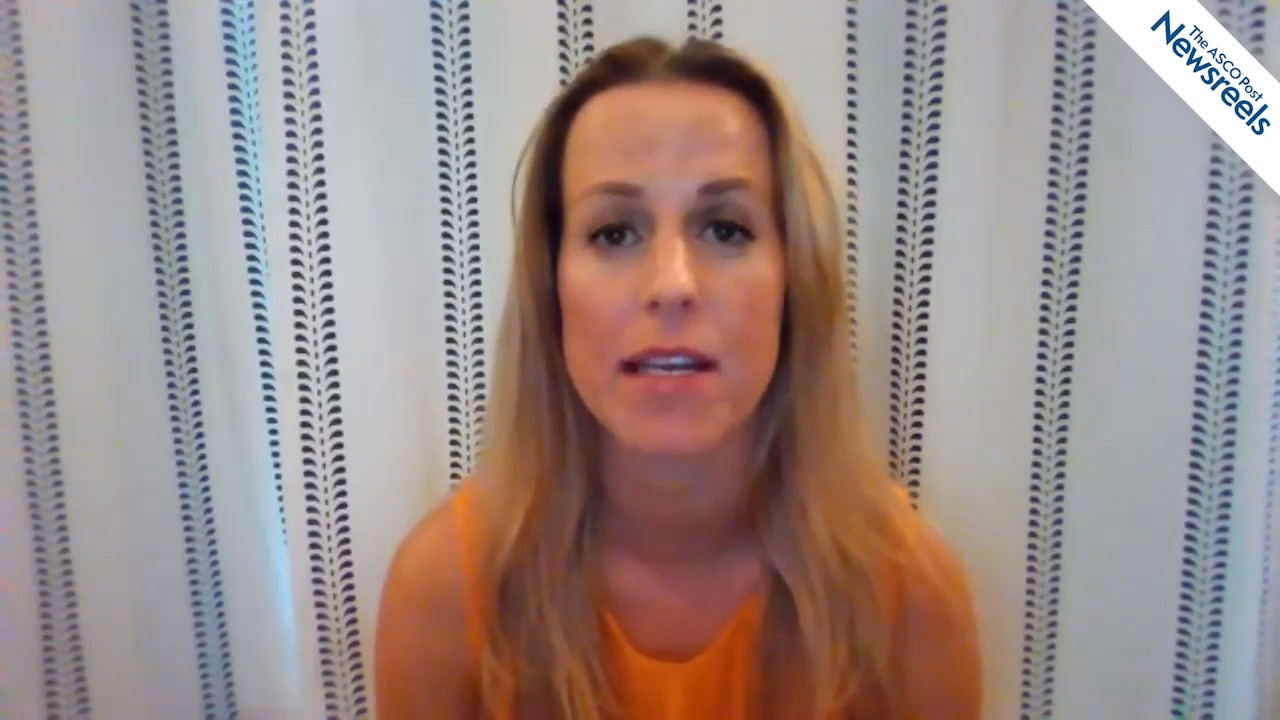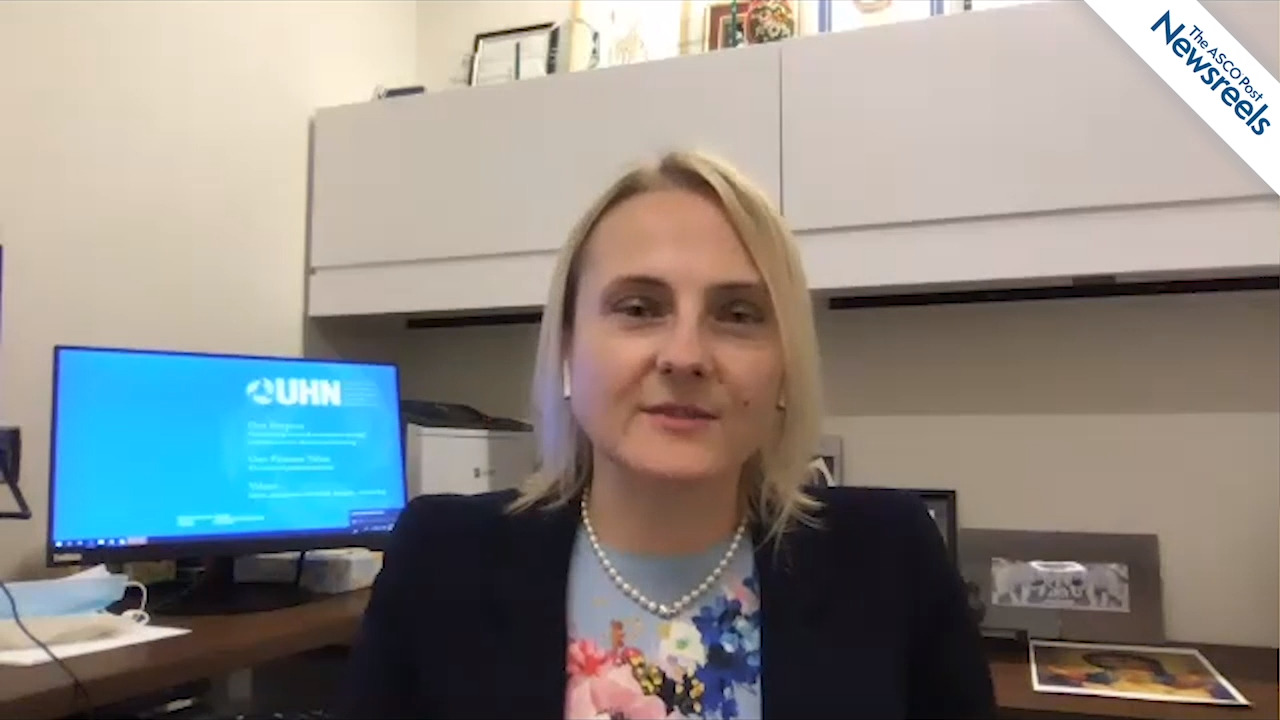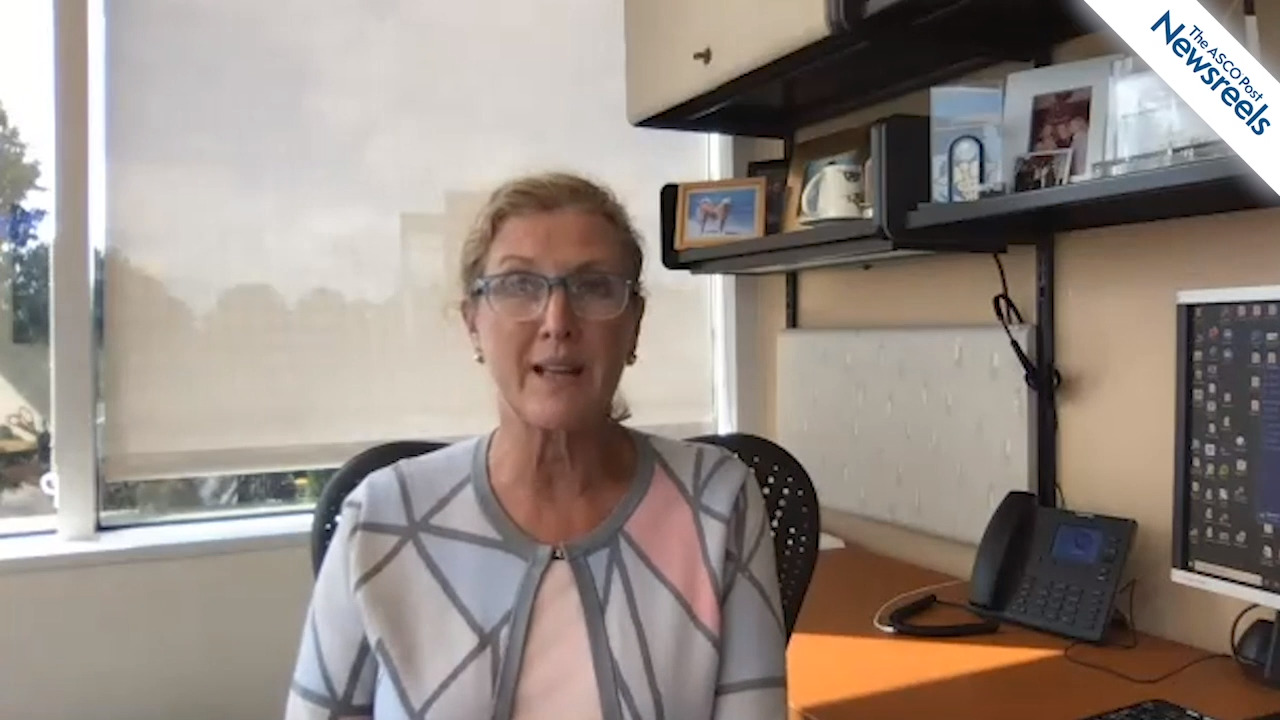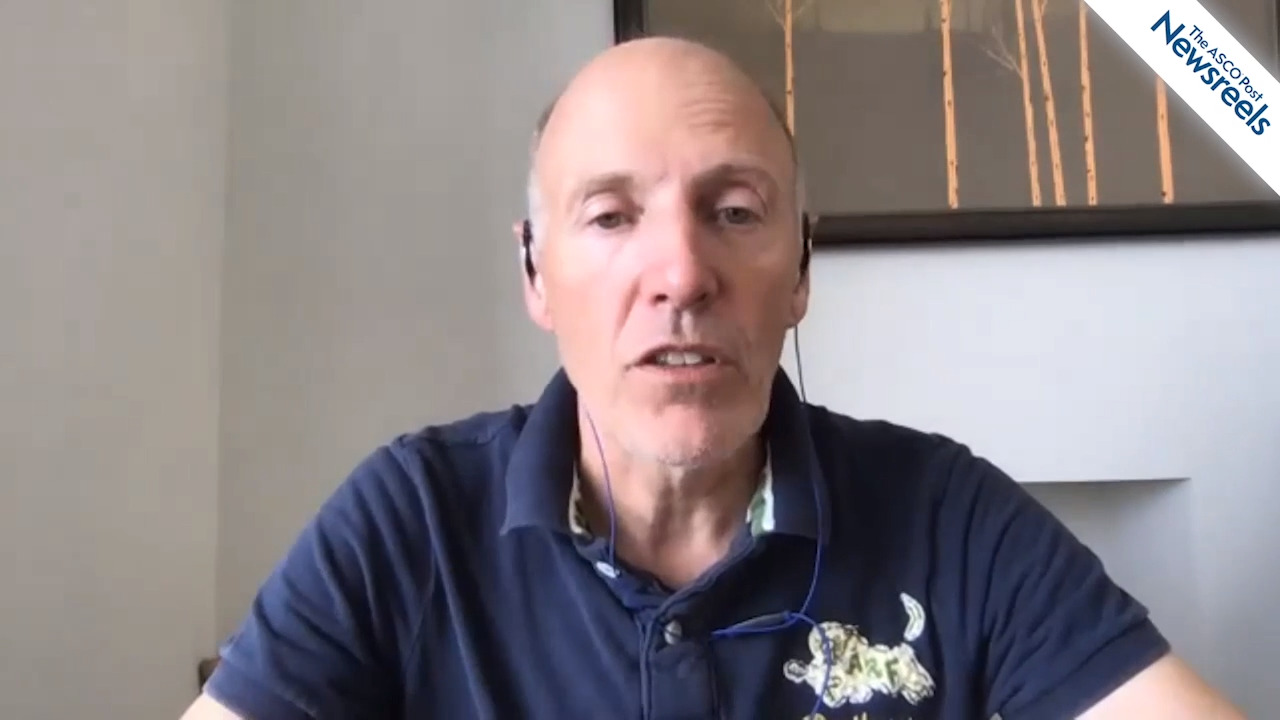Andreas Schneeweiss, MD, on Breast Cancer: Comparing Neoadjuvant Chemotherapy With Paclitaxel, Doxorubicin, and Carboplatin
ESMO Virtual Congress 2020
Andreas Schneeweiss, MD, of the Heidelberg University Hospital and German Cancer Research Center, discusses phase III survival data from the GeparOcto trial, which compared the neoadjuvant chemotherapy intense dose-dense EPC (epirubicin, paclitaxel, and cyclophosphamide) with weekly paclitaxel and liposomal doxorubicin (with or without carboplatin in triple-negative breast cancer) for patients with high-risk early breast cancer (Abstract 160O).
The ASCO Post Staff
Erika P. Hamilton, MD, of Sarah Cannon Research Institute, discusses results of the nextMONARCH study, which indicated that combining abemaciclib with tamoxifen improved overall survival. Dr. Hamilton also details adverse events in different arms of the study (Abstract 273O).
The ASCO Post Staff
Alexander M. Eggermont, MD, PhD, of the Princess Maxima Center for Pediatric Oncology, discusses final results of the phase III EORTC 1325-MG/Keynote 054 trial, which confirmed a sustained recurrence-free survival benefit of pembrolizumab vs placebo in patients with resected high-risk stage III melanoma, as well as a decrease in the incidence of distant and locoregional recurrence (Abstract LBA46).
The ASCO Post Staff
Monika K. Krzyzanowska, MD, MPH, of the Princess Margaret University Health Network, discusses study findings on remote proactive telephone-based toxicity management for patients with breast cancer receiving chemotherapy. Although the telehealth program was associated with fewer grade 3 toxicities and a slight decline in quality of life, it did not lead to fewer emergency department visits and hospitalizations (Abstract LBA87).
The ASCO Post Staff
Lisa A. Carey, MD, of the University of North Carolina, discusses phase III results from two IMpassion trials, 130 and 131, which explored, respectively, atezolizumab plus nab-paclitaxel vs placebo plus nab-paclitaxel in previously untreated locally advanced or metastatic triple-negative breast cancer and first-line paclitaxel with or without atezolizumab for unresectable disease (Abstracts LBA15 and LBA16).
The ASCO Post Staff
Nicholas D. James, PhD, MBBS, of The Institute of Cancer Research, London, discusses long-term STAMPEDE trial results that showed patients with metastatic, hormone-naive prostate cancer benefited from abiraterone acetate plus prednisolone in terms of overall and failure-free survival, as well as skeletal-related events (Abstract 611O).





